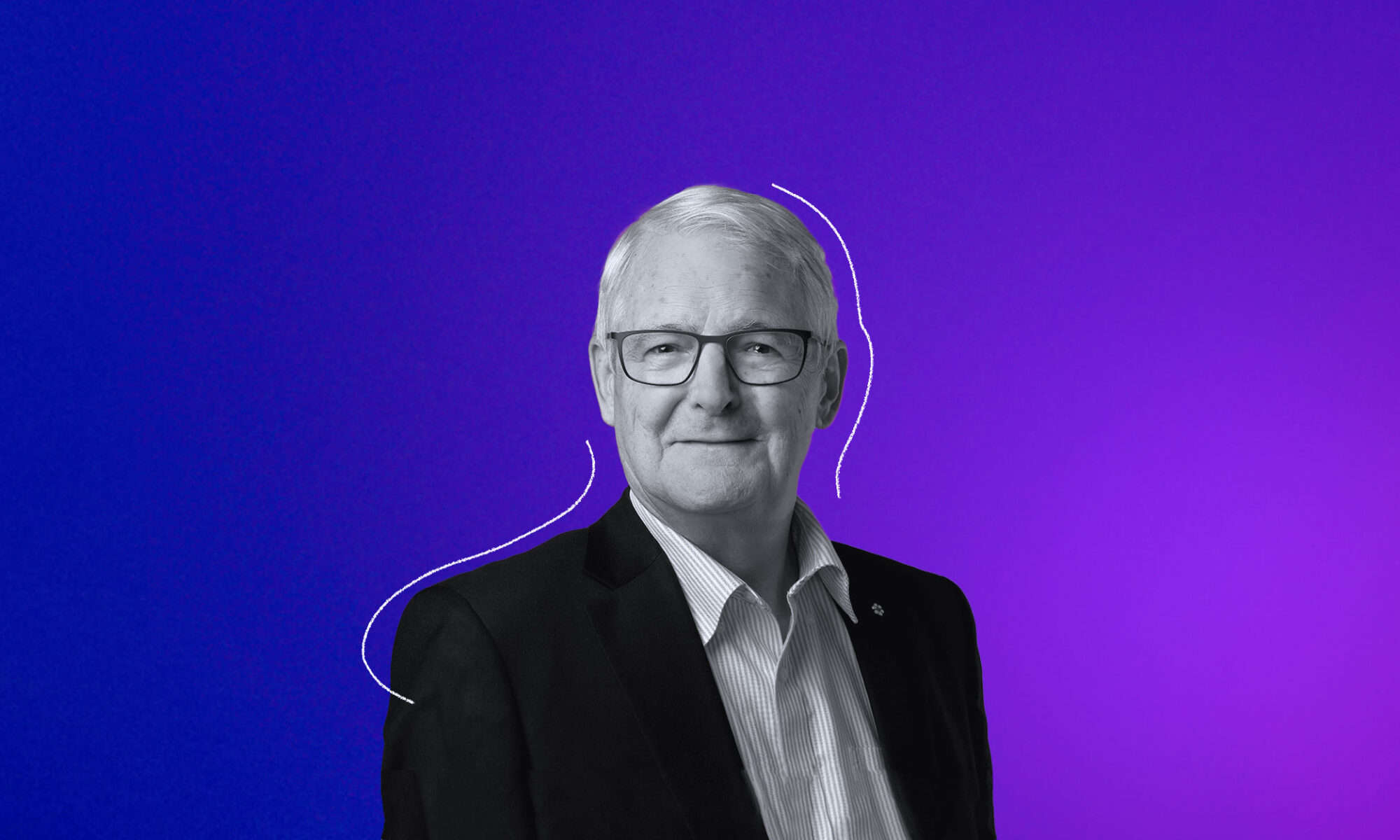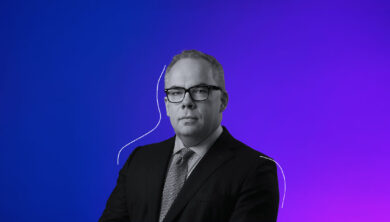
Marc Garneau – 2024 Testimonial Dinner Award Honouree
“I’ve led a charmed life in service of my country.”
Marc Garneau’s triptych career spanned industries, ministries — and planets
Navy commander. First Canadian astronaut. Federal transport minister.
Marc Garneau gets around. He has navigated oceans, jetted through space and bobbed and weaved through the fractious halls of Canada’s Parliament. These three careers are linked by what he describes as his enduring qualities: curiosity, love of adventure, risk-taking, passion and a commitment to serving to his country.
“I’ve always been open to all sorts of possibilities that have taken me many places,” says the 74-year-old, adding, “I’ve led a charmed life in service of my country.”
With each role, Garneau had to adjust to changing public expectations and perceptions. He jokes that each of his careers have come with risk, especially space flight, but entering politics brought a new challenge: learning to grow a thick skin.
Since announcing his retirement from politics in March 2023, Garneau has written his memoir (it’s with a publisher), weighed all sorts of offers (he’s agreed to be the chair of the Canada-Korea Forum), and tackled home repairs (he proudly tweeted a photo of himself rebuilding a section of his backyard fence, with followers congratulating him on being a man of many talents). Indeed.
Born in 1949, Garneau grew up in a bilingual military family shaped by a strong sense of duty — and war. During the First World War, his grandfather, Col. Gérard Garneau, was wounded twice, at Passchendaele and Lens. His father, Brig.-Gen. André Garneau, fought across France, Belgium, Holland and Germany during the Second World War. But Garneau dreamed of a career in the Royal Canadian Navy. Instead of boots on the ground, he’d stand proudly on his sea legs, first tested as a boy when he twice crossed the Atlantic Ocean on a passenger ship with his family. When he was old enough, Garneau became a Royal Canadian Sea Cadet and sought out seafaring adventures.
In July 1969, the 20-year-old was a midshipman on summer training aboard a 59-foot yawl with 12 other crewmen. They were in the English Channel, after crossing the Atlantic. Beneath the moonlight, he listened by shortwave radio as Neil Armstrong touched down on lunar soil. “I was looking at the moon and listening to the landing,” Garneau has said. He didn’t consider space an option back then — Canadians need not apply.
In 1970, Garneau graduated with a Bachelor of Science in Engineering Physics from the Royal Military College in Kingston, Ont., and by 1973, he earned his PhD in electrical engineering from the Imperial College of Science and Technology in London, England. During 25 years in the Navy, Garneau served as a combat systems engineer on HMCS Algonquin and was an instructor in naval weapons systems at the Canadian Forces Fleet School in Halifax, where he also designed a simulator to train officers to use the missile systems aboard destroyers. In 1982, he was promoted to commander and was a respected authority on naval communications and electronic warfare equipment and systems.
He was working at defence headquarters in Ottawa in 1983 with no plans to leave the military when he saw what he has described as “an innocuous little ad” in the newspaper. The Canadian government was looking for astronauts to fly in the U.S. space shuttle and Garneau was deemed the right stuff — he was one of six chosen out of nearly 4,300 applications, and the first to blast off. He went to space in 1984, then again in 1996 and 2000, even though the Space Shuttle Challenger broke apart 73 seconds into its flight in 1986, killing all crew members aboard. “I have always accepted a certain amount of risk,” he says. “The job is so extraordinarily compelling I was willing to take that risk.”
He also served as the CAPCOM, or capsule communicator, for 17 NASA missions. As the “voice of Houston,” he bridged two worlds: Mission Control Center on Earth, and that of astronauts in space. In 2001, he became head of the Canadian Space Agency, which gave him a taste of politics.
He ran for the seat in the riding of Vaudreuil-Soulanges in Quebec in the 2006 federal election but lost by 9,000 votes. It was a humbling experience, he says, especially to see posters with his picture on them defaced; one even set on fire. After the loss, he decided to run again — his desire to serve his country was so great, he says, that he couldn’t walk away. In 2008, he was elected by a landslide to represent the Quebec riding of Notre-Dame-de-Grâce–Westmount.
Garneau ran for the Liberal leadership in 2013 but withdrew from the race and supported eventual winner Justin Trudeau. During the campaign, Garneau was branded as wooden and knocked for his lack of charisma. Garneau counters that his policies had depth: “I take pride in hopefully being a person of substance,” no disrespect to his opponents intended.
After Trudeau formed a majority government in 2015, Garneau was named the 29th Canadian minister of transport. Then in January 2021, Trudeau appointed him to the plum Foreign Affairs posting, which thrilled Garneau, who had been thinking about retiring from politics. Eight months later, another election was called. Explaining to his wife, Pamela Soame, and his four adult children that he still had a lot to accomplish at Foreign Affairs, Garneau decided to run again. Three weeks after the election, he learned he wasn’t going to be in cabinet.
“I wish I could have stayed there longer, but it was not to be,” he says, wistfully. He says he’s never asked Trudeau why he was dropped. “It’s the prime minister who chooses his cabinet and that’s the way it is. And so, you’re in the hands of the gods.” Garneau says he made peace with the decision and served his constituents for 18 more months before resigning. During that time, he made waves by going against Trudeau and most of his party in taking an ultimately unsuccessful stand against Bill C-13, which sought to protect linguistic minorities throughout Canada, with emphasis on the French language.
The bill proposed to amend the Official Languages Act to ensure federally regulated businesses in French-dominant regions of Quebec offered services in French. But the bill’s preamble referenced the province’s own controversial language law, Bill 96, as a model for the protection and promotion of the French language. Garneau felt to reference it in a federal bill was not appropriate, and that English-language minority rights in Quebec could be jeopardized if there was a conflicting interpretation between C-13 and Bill 96. Garneau has described anglophone minority rights in Quebec as “a hill to die on,” saying, “I didn’t lose any sleep over it because I went to bed every night with the conviction that I was doing what I believed was right and that that was expected of me” by his constituents in a heavily anglophone riding.
In retirement, Garneau has promised his wife he won’t be a “couch potato.” Researching his own career, especially the little-described years he was in the Navy, has been satisfying. At first, he was writing it for his children and grandchildren, but now it’s with a publisher with hopes it finds a wider audience. He says there will be something for everyone — space nerds, military types and political junkies.
Will he pull punches? “There is a way to tell it like it is without it getting personal.”
Profile by Shelley Page
Photo by Blair Gable
Tickets for the Annual Testimonial Dinner Honour Roll 2025 are available to purchase now.
2024 Honourees
Janice Charette | JP Gladu | Jayna Hefford | Murad Al-Katib | Paul Wells
Past Honourees
Harold Calla | John Risley | Lisa Raitt | Stephanie Nolen | Janice Stein | Laurent Duvernay-Tardif | Naila Moloo





